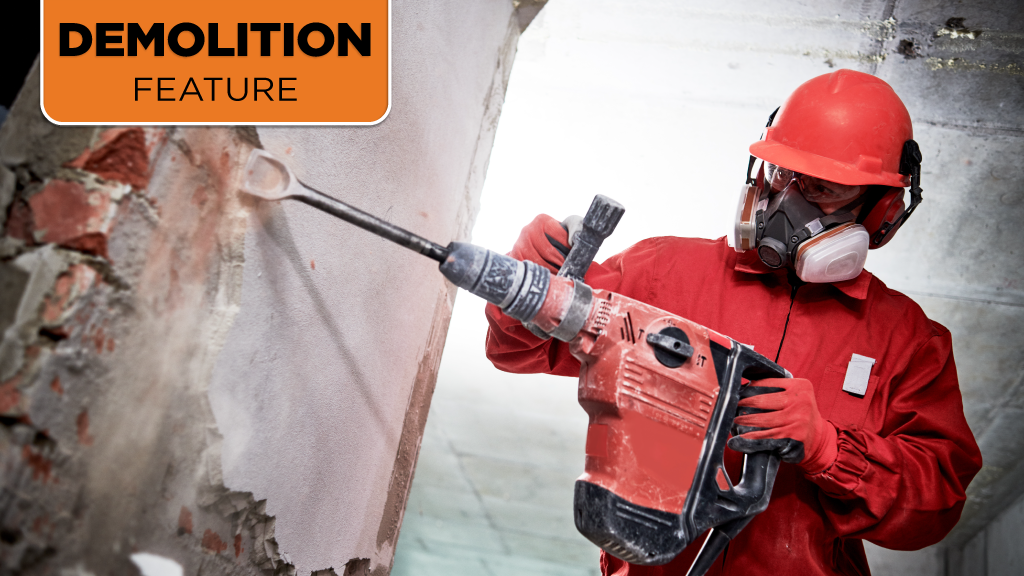Building deconstruction – the selective dismantlement of building components for reuse or repurposing – as a substitute for demolition is still relatively new.
The appearance of deconstruction education, however, is a sign it is moving into the mainstream.
For example, the School of Construction and the Environment at BC Institute of Technology (BCIT) is offering a part-time distance and online learning micro-credential called Applied Circular Economy: Zero Waste Buildings (“ACE”).
The purpose of ACE is to train professionals to deliver the low-impact buildings needed to achieve energy net-zero targets.
The micro-credential consists of three courses: Deconstruction (material recovery and working with salvage); Design for Disassembly (the principles of DfD and Cradle to Cradle); and Construction Material Flow Analysis (understanding the industry and the path of materials through it).
The ACE credential can be placed in a digital wallet or e-portfolio that can be shown to employers and education institutions.
BCIT will begin offering ACE in fall 2022.
Brenda Martens, part-time faculty in BCIT’s Environmental Engineering Technology program, is the lead on ACE.
“A micro-credential is a way for someone to improve their credentials without taking a whole course,” said Martens.
There are three reasons why ACE is needed, she says.
“The first is there is a lack of education for beginning professionals and those who want to upgrade their skills and knowledge, and there are virtually no courses in North American building circularity,” said Martens. “This is the first micro-credential in building circularity in Canada – and, I believe, in North America.”
The second reason is that landfills have reached, or will soon reach, their end of life.
“Third, there is a carbon and financial price to pay for building materials that go to waste,” said Martens.
Martens says ACE was developed as a stand-alone micro-credential and as the first set of courses for a proposed regenerative building professional certificate program (RBP).
In addition to the basic skills offered in existing BCIT courses, the certificate will combine ACE and future micro-credentials for building energy and regenerative design.
Martens says the purpose of the RBP certificate is to formalize the profession of green building consultant.
“The profession of green building consultant is only about 20 years old,” she said. “There is a lack of education specific to the profession, making it difficult to hire trained entry-level staff and for practitioners to pursue continuing education.”
Zero Waste Canada (“no bury, no burn”) is developing a Zero Waste Construction Certification.
Jamie Kaminski, Zero Waste Canada (ZWC) board member, says Zero Waste construction certification is specific to an individual project that follows Zero Waste principles and practices.
“The intention is for key decision makers to identify opportunities to avoid waste and toxins to be avoided throughout the design and construction process, to ensure the proper management of discards and toxic materials that are generated during the demolition phase… and to avoid future waste generation if a building requires demolishing in the future,” said Kaminski.
BCIT’s Martens says she expects an increasing demand for deconstruction education and training in BC as municipalities add deconstruction requirements to their demolition bylaws.
Unlike building bylaws, municipalities and regional governments can implement waste management bylaws as they see necessary.
Faisal Mirza, senior project manager, solid waste strategic services at the City of Vancouver, says the city’s Green Demolition by-law was created in 2014 to formalize minimum reuse and recycling requirements during demolition.
“The last update to the by-law in 2018 introduced minimum wood salvage requirements for heritage-listed houses or houses built before 1910, and solidified the city’s steps towards shifting to deconstruction,” said Mirza. “The wood salvage requirement is intended to be a starting point and to provide opportunity for demolition companies to shift to more sustainable practices over time.”
The District of North Vancouver is beginning to explore opportunities to reduce construction and demolition waste, says Caroline Jackson, the municipality’s manager – climate action, natural systems and biodiversity.
“Our community plan’s action plan recommends that deconstruction and recycling should be incentivized or required, and we are currently undertaking stakeholder engagement and local market research to determine the feasibility of implementing any potential policies or bylaws,” said Jackson.
In Victoria, city council directed staff in May 2021 to bring forward a bylaw to motivate the salvage of reusable and recyclable materials from building demolitions.
“Victoria is in the final stage of developing the bylaw,” said Christine Woodhouse, the city’s senior sustainability specialist. “Staff expects to bring the bylaw to Council for its consideration this spring, with implementation planned to start later this year [2022].”
Woodhouse says Zero Waste Victoria is the city’s plan to reduce waste disposal by one-half by 2040.








Recent Comments
comments for this post are closed